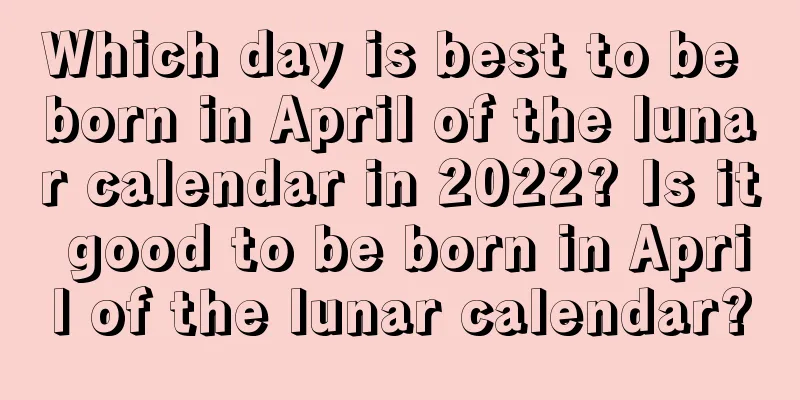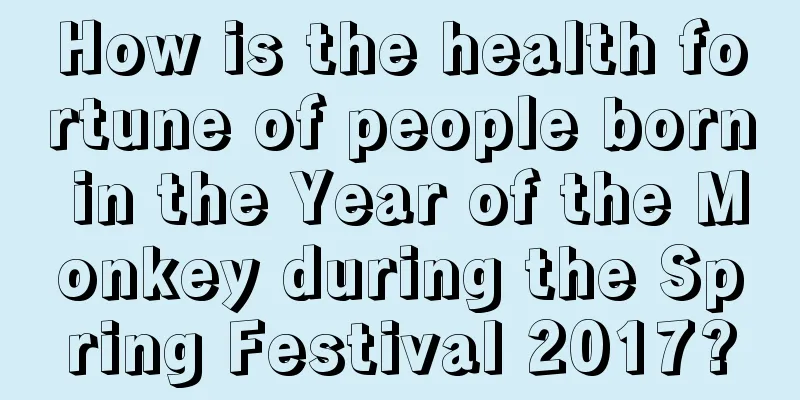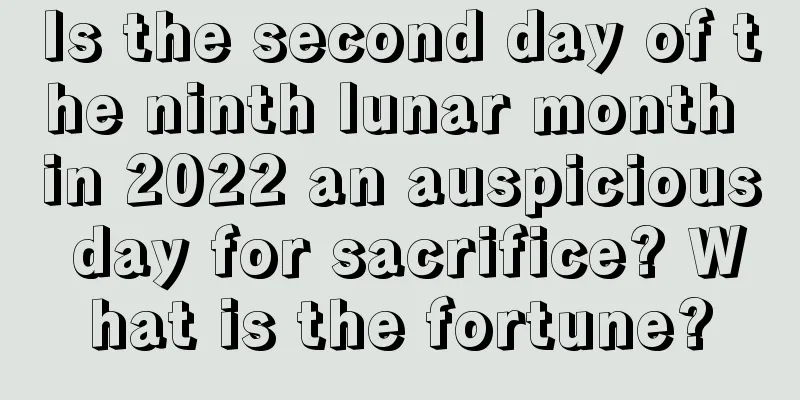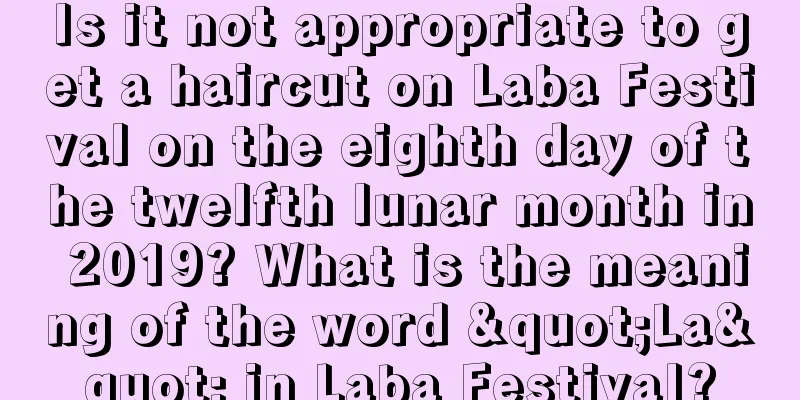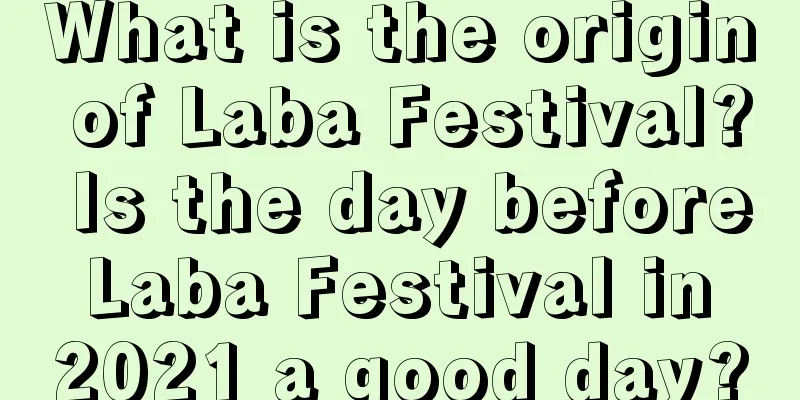What are the lunar calendar do’s and don’ts for the Mid-Autumn Festival in 2018? What is the origin of moon-watching on Mid-Autumn Festival?
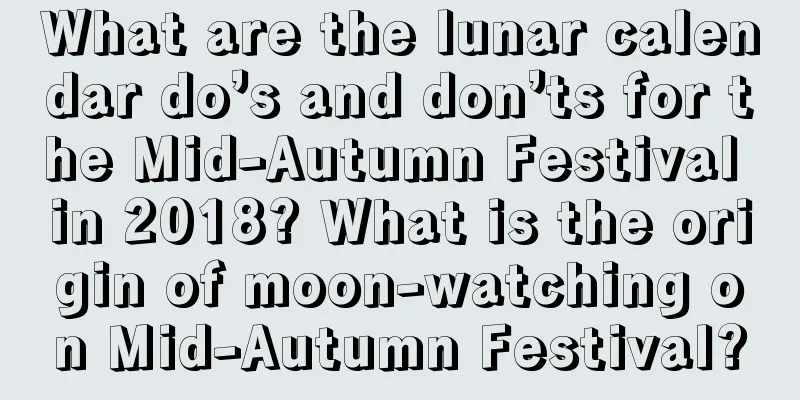
The fifteenth day of the eighth lunar month every year is the traditional Mid-Autumn Festival. This is the middle of the autumn season, so it is called Mid-Autumn Festival. According to the Chinese lunar calendar, what are the auspicious and taboo things to do during the Mid-Autumn Festival in 2018? What is the origin of moon-watching on Mid-Autumn Festival? August is the second month of autumn, known as Mid-Autumn in ancient times. Do you want to know more about August in the lunar calendar of 2018? Go check out Mr. Ink.Analysis of the lunar calendar for the Mid-Autumn Festival in 2018:August 15, 2018 (Lunar calendar)September 24, 2018, Monday Libra (Gregorian calendar) 【Today’s lunar calendar is suitable】 [Do not use it on days when death is a serious matter] Accepting wealth, hiding treasure, accepting marriage proposals, seeking children, setting up beds, seeking medical treatment, offering sacrifices, fasting and offering prayers, migrating, attending school, planting, and signing contracts [Today’s taboos in the old almanac] [Do not use it on days when death is a serious matter] Opening the market, traveling, seeking wealth, building, raising livestock, breaking ground, buying property, breaking ground, building embankments, releasing water, opening warehouses, and burials. Auspicious gods to follow: Baoguang, Daming, Shengqi, Shiyang, Tiancang, Yinde. Evil spirits to avoid: Fan Gong, Jiukong, Shousi, Tufu, Wuxu. God of Wealth: Northeast. God of Fortune: Due South. God of Wealth: Due North. The origin of moon watching on Mid-Autumn Festival:Mid-Autumn moon-watching refers to watching the full moon on the 15th day of the eighth lunar month. The folk activity of moon-watching on the 15th day of the eighth lunar month began in the Wei and Jin Dynasties and flourished in the Tang and Song Dynasties.The origin of the Mid-Autumn Festival moon-watching can be traced back to the "Moon Festival", which originated from ancient humans' worship of nature. In the ritual system of ancient emperors, there were two sacrifices in spring and autumn: the spring sacrifice to the sun and the autumn sacrifice to the moon. Originally, the day for moon worship was on the "Autumnal Equinox". The season of "Autumnal Equinox" is different every year in August, so there may not be a moon on this day. It would be a disservice to worship the moon without a moon. Gradually, it became a convention to fix the day for moon worship on the 15th day of August. From scientific observations, the inclination of the earth and the sun increases in autumn, and the warm and humid air above the land of China gradually dissipates. At this time, the northwest wind is still very weak. In this way, the humidity is gone and the dust has not risen, the air seems exceptionally fresh, the sky is particularly clean, and the moon looks round and big. It is the best time to appreciate the moon. Just as the ancient poem says: "The moon is bright and clear. People in ancient and modern times admire it. Is it because the moonlight is different? It is the clear air in the sky and on earth." |
>>: Is it suitable to pick up a car on the eighth day of the eighth lunar month in 2018?
Recommend
What is the fate of a boy born on the first day of the fourth lunar month in 2018?
Introduction: The birth of a new life is a big eve...
Is it suitable to visit patients on the 15th day of the 10th lunar month in 2018, the Lower Yuan Festival? Is it okay to visit patients on the Lower Yuan Festival?
Introduction: The Lower Yuan Festival is an import...
2018 June 13th auspicious time, auspicious and unlucky time query
The sixth month of the lunar calendar is also kno...
Is the third day of the Lunar New Year in 2020 suitable for engagement? What festival is on the third day of the first lunar month in 2020?
Introduction: You also need to choose an auspiciou...
Is August 19, 2020 a good day to sign a contract? Analysis of the hexagram on October 5!
Introduction: It is necessary to choose an auspici...
Is the eighth day of the tenth lunar month in 2021 an auspicious day for installing a door?
The tenth month of the lunar calendar arrives with...
Are people born during the Xu hour (19:00~20:59) on the winter solstice in 2021 blessed? What is their fate?
The winter solstice is in the eleventh month of th...
What is the day like on the fourth day of the second lunar month in 2020? Is traveling okay?
The quality of life is different every day, so let...
Is it okay to propose marriage on June 14th of the lunar calendar in 2022? What is the difference between proposing marriage and getting engaged?
The sixth lunar month is the best time to apprecia...
Query of the position of the God of Happiness on the second day of the eleventh lunar month in 2018
The arrival of November in the lunar calendar mea...
The ninth day of the third lunar month in 2020 - the auspicious and inauspicious times and the taboos of the times
Every hour of the day has corresponding good and ...
Where is the God of Wealth on October 18, 2020? Where can’t the statue of the God of Wealth be placed?
The tenth month of the lunar calendar is now also...
What is Mangzhong? What should we pay attention to during Mangzhong?
Entering June means the Grain in Ear season is app...
Is the Autumnal Equinox on the fourth day of August 2017 auspicious or inauspicious? What can’t you do during the Autumnal Equinox?
The 24 solar terms are one of the timekeeping cale...
Is it okay to hold the funeral on the 14th day of the 11th lunar month in 2017?
Introduction: China's numerology culture is pr...

